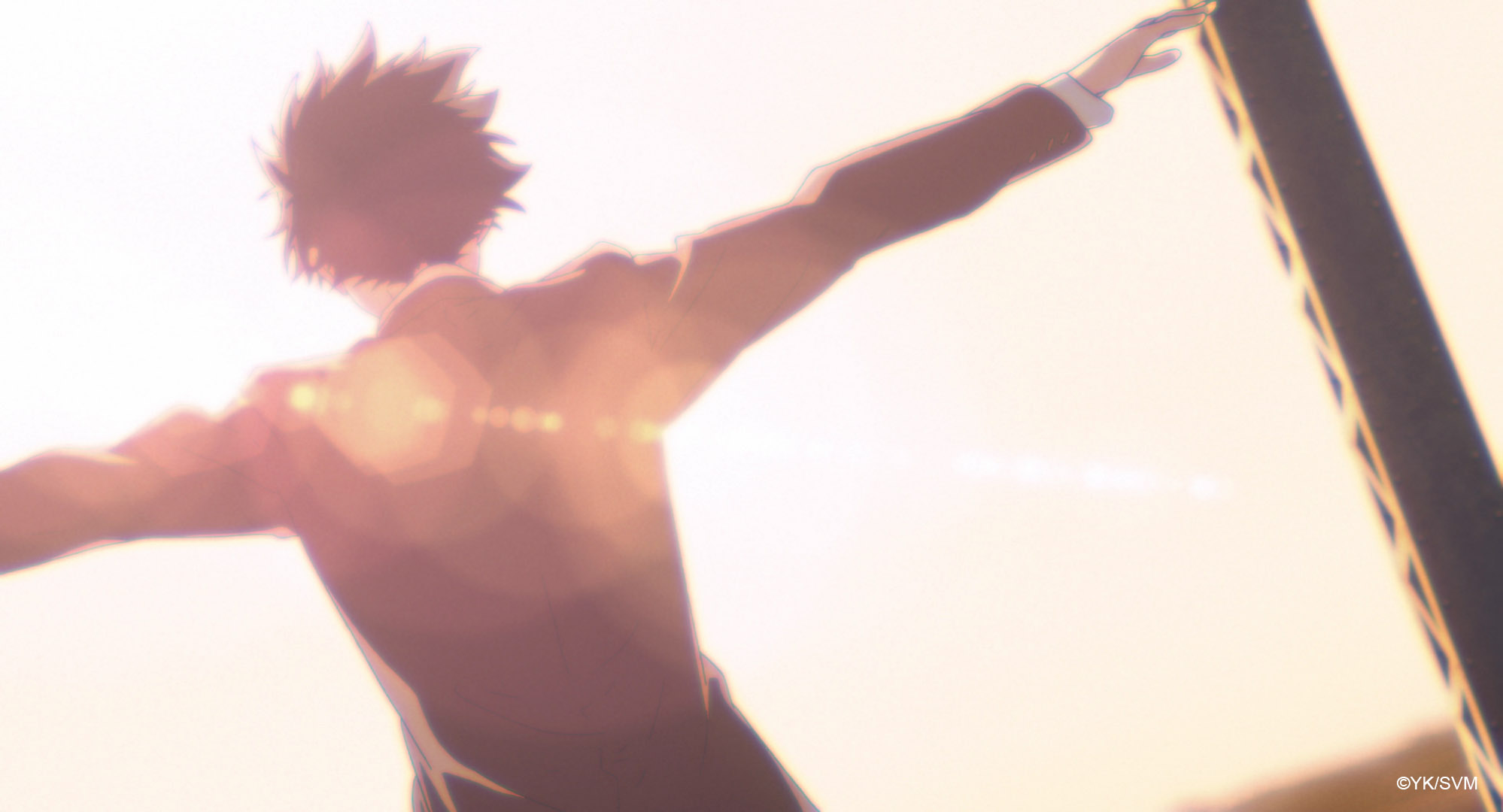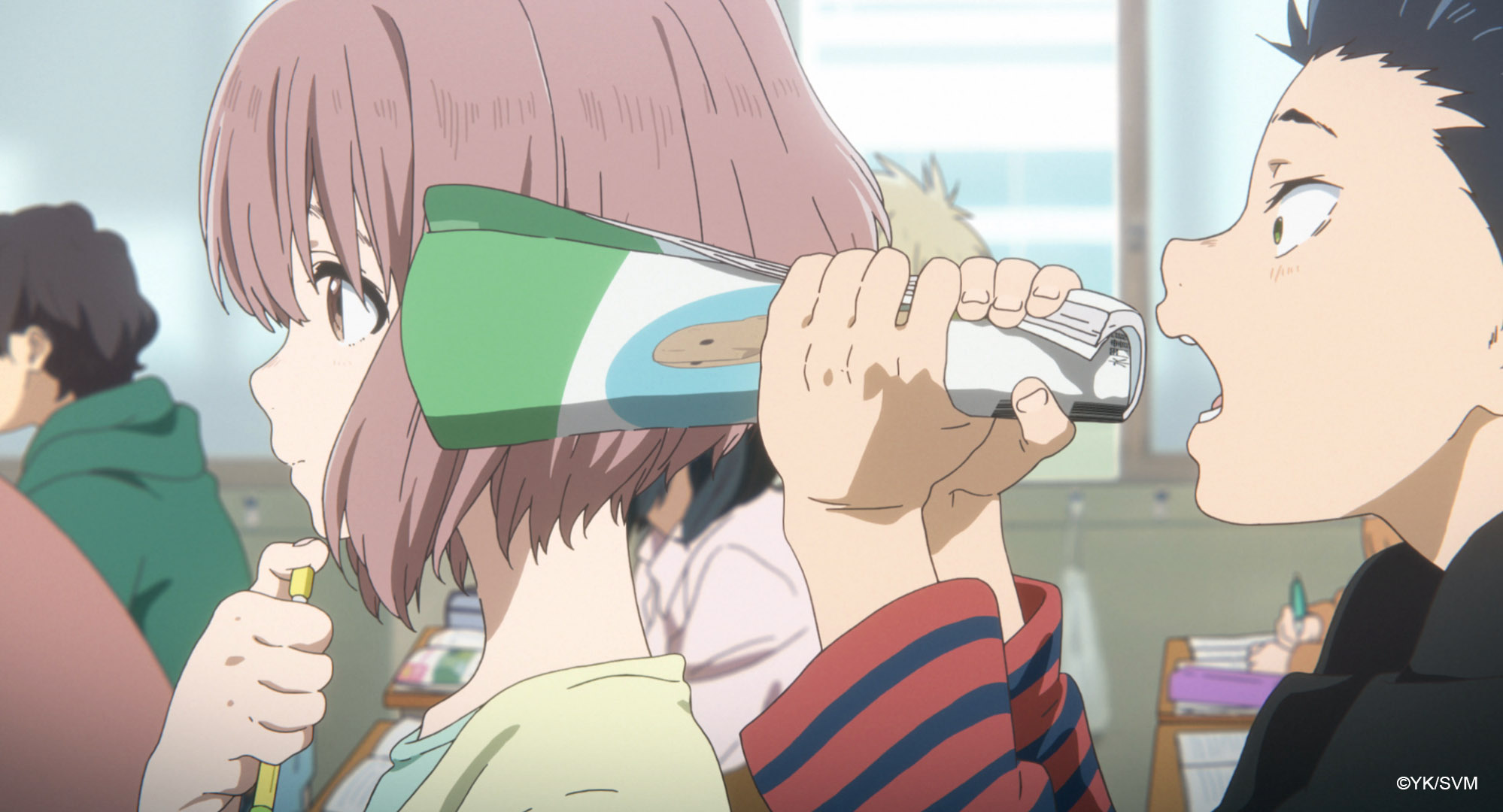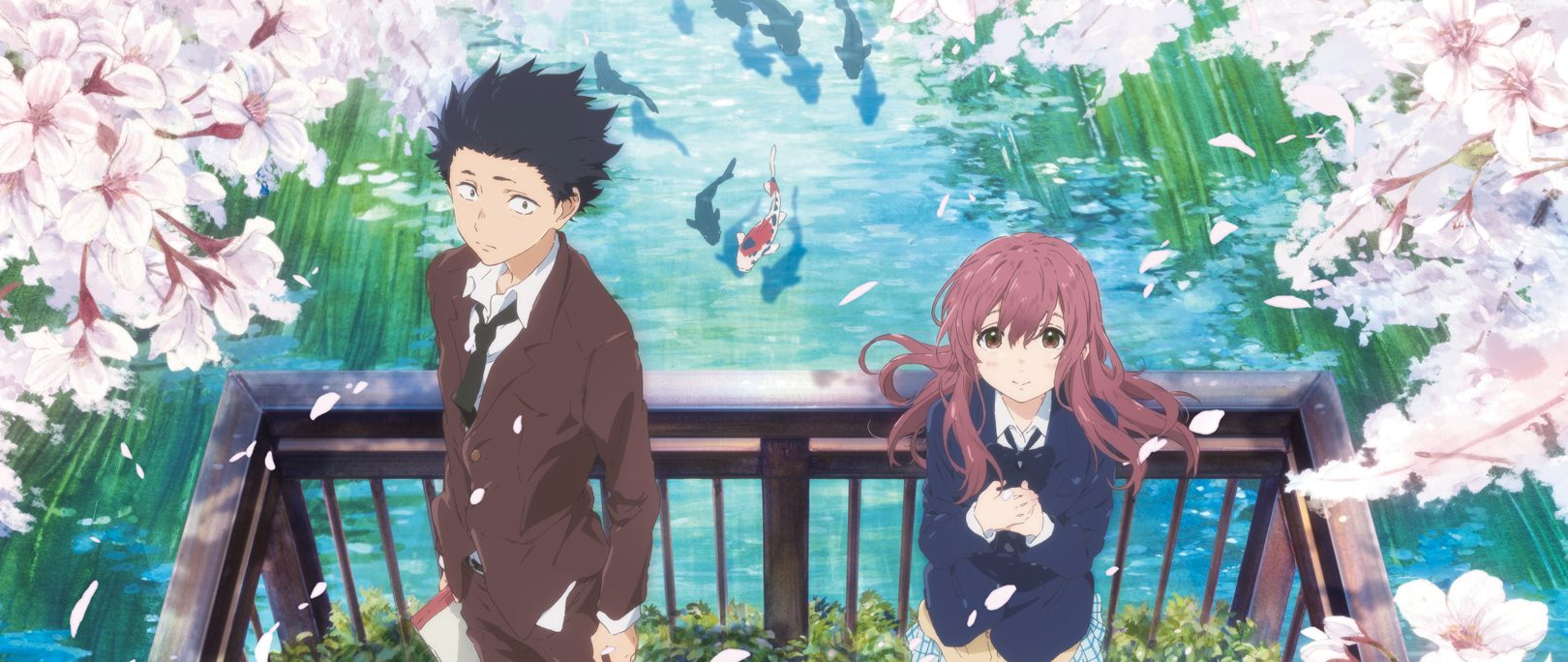Shouya Ishida is a lanky, handsome teenager attending high school in Tokyo. He’s smart and does well in school. He has a supportive family, and there are people in his life that he cares deeply about. Shouya is respectful and kind, and works diligently at a part-time job, helping to support his family. And tomorrow, he will leap off a bridge, choosing to end his life.
A Silent Voice, based on Yoshitoki Ōima’s critically acclaimed manga and premiering in 2016 in Japan, was re-released this week in the United States for a second theatrical run. The film tackles difficult concepts like disability, bullying, and suicide with surprising intelligence and alacrity, and in a year where Mirai is getting well-deserved attention during the awards season, serves as an additional reminder of the heights at which anime can rise.
Suicide is a common theme, of course, in young adult pieces. A 2016 report by the CDC quantified suicide as the second-leading cause of death in America for both the the 15-24 age group and those even younger, 10-14. The popularity of 13 Reasons Why (a third season was recently announced) demonstrates a desire to see this difficult but topical theme explored, though its rarely seen in western animated films. The connotation that animation is for kids adds a layer which makes discussion of this topic difficult, but anime, a format that lends itself to audiences of varying ages, hasn’t shied away, with series and films like Colorful, Aoi Bungaku, and Orange tackling the subject head-on with sense and poignancy.

But A Silent Voice doesn’t stop there. In fact, suicide is largely forgotten as a topic for much of the film, as a tale more complicated than that with a singular focus emerges. Shouya seems like a typical kid, but a view from his school life reveals that he has no friends and is socially awkward. In flashbacks—a convention used keenly and effectively throughout the two hour run time—it’s revealed that Shouya ends up in his situation after years of bullying that occurred after he became the pariah for tormenting another student, Shouko, a kind and gracious deaf girl who transferred into his elementary school class. Shouya is an unrelenting bully, and is joined in his efforts by Ueno, who is more skillful and clever (and malicious) in her approach, and Kawai, whose passive bullying, placing blame and acting as a bystander, represents the complicity of many of her classmates.
Much of what makes A Silent Voice (literally Shape of Voice when translated) so compelling is how it approaches the story and the difficult topics it explores without presenting easy solutions, without tidy beginnings and ends. Is Shouya simply receiving what he deserves? Is Kawai really as much a bully as Shouya was? Is Ueno the villain of the tale? Should Shouko have done something different? And perhaps the biggest question of all—is Shouya, who purposely encounters Shouko again and attempts to restore what he took from her (a last act before his attempted suicide), doing so to help her or help himself? These questions are all challenging, and the answers uncomfortable.

It feels like this complexity is too much to explore in a single animated film, especially when combined with a shocking event that occurs about 2/3 of the way through which turns a relationship-based movie into something more, something unexpected. But it’s a testament to director Naoko Yamada’s ability that she leads us on a thought-provoking journey based not on caricatures, but on characters of depth who remind of us friends and classmates we might have known when we were younger, or maybe even whom we might have been. Supporting players like Sahara, the first victim of bullying who grows into a more confident young lady; Yuzuru, Shouko’s delinquent younger sister; and Nagatsuka, Shouya’s self-proclaimed best friend and comedic vehicle, are complex in their own right, much more so than they should be in a film of this length, not to mention the leads, especially Shouko, to whom we’re introduced as a girl who cannot hear, and later embrace as one dealing with her own guilt and an inability to move past what she perceives as her own sins.
But it is absolutely necessary that the film proceeds in this direction. My previous experience with A Silent Voice is relegated to the one shot manga that preceded the full manga series, and it, too, was unexpected and most of all, authentic. Anything less would be cheap and condescending. We cannot and aren’t expected to support all of Shouko’s choices—she is not a goddess—and we can’t cover up all of Shouya’s sins, even though we desire to, for his actions were critical in creating the problem and he later destroys everything he’s built up (a frustrating if realistic action). Neither can we blame a teacher who seems uncaring one moment and too passionate the next, nor Ueno, who reaches both the heights of selfishness and the depths of pounding home a pointed message to be heard loud and clear. We are multi-faceted people, and so are the characters at the heart of the film.
Even the excellent writing provides quotes that are genuine in their layered approach:
“Everyone suffers in their life. It’s like that for everyone.”
“I understood you in ways that were convenient for me.”
“I always thought I should talk to you [after the bullying].”

The care given to this story extends to the animation, too. Pink hues cover the entirety of the film, adding a soft quality that grounds us in the themes of friendship, romance, and forgiveness that run concurrently with heavier ones. And frequent shots of feet and of expressive faces pull out emotion without anything needing to be said. The quality of the film is excellent, though I was afraid that the many coincidental meetings in the story would culminate, especially in one scene, toward the realm of fantasy and away from reality. Thankfully, it didn’t.
The movie remains firmly propped in the real world, but lest we leave the theater feeling that the pain of the past can’t be overcome, it also advances the idea that there is hope. We are not too far gone, despite the evil things we do, despite our life situations, despite disability, death, and self-destruction, despite even our own rigidity and the coldness that develops when we fight so hard, as demonstrated in a small but powerful role given Shouko’s mom. Despite all this, there is hope. And that’s a message people of Shouya and Shouko’s age dearly need to understand—as do we all.
Rating: ***** (out of five)
A Silent Voice is now available for purchase on Blu-Ray and DVD.


I thought this would be a typical love story (because of the thumbnail), but instead I read about someone commiting suicide. That’s so sad. 🙁
I highly recommend you watch it when it’s available, Rachel! It starts out with someone wanting to commit suicide, and there are sad elements, but this is ultimately a story of hope and friendship.
I honestly don’t think I’ll watch it because I get very sensitive to sad movies like that.
I understand!
I remember recommending this manga on this site several years ago. I’m glad that you looked into it.
Have you read the other manga I recommended? “House of the Sun” is still one of my favorite manga that I go back and reread whenever I feel the need to ground myself again. It’s also one of the better representations of how much divorce hurts children.
I remember that rec! I’m glad I finally got around to the movie, if not the manga. I hope to read that one day as well—I’ve only read the one-shot.
I haven’t read “House of the Sun”—sounds unique among manga…I’m definitely interested!
I’d love to hear your thoughts after reading it.
[…] Silent Voice is also an oft-covered series here on Beneath the Tangles, a powerful movie that among other topics, focuses on depression, bullying, and […]